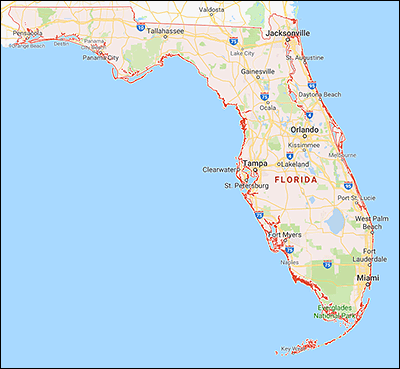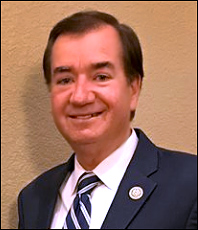By Jim Ellis — Monday, March 18, 2024
Senate
Ohio: Conflicting Polls — Late last week, we reported on an Emerson College poll of the Ohio Senate Republican primary that posted state Sen. Matt Dolan (R-Chagrin Falls) to a 26-23-16 percent edge over businessman Bernie Moreno and Secretary of State Frank LaRose, respectively. Now we see a Survey USA study (March 6-11; 1,241 registered Ohio voters; 533 likely Republican primary voters; online) that projects Moreno holding a 22-18-16 percent lead over Sen. Dolan and Secretary LaRose. The closeness of both polls suggests any of the three still has a chance to win this coming Tuesday.House
CO-4: Boebert Won’t Run in Special — Colorado US Rep. Lauren Boebert (R-Silt) announced late last week that she will not compete in the special election to replace resigning Rep. Ken Buck (R-Windsor) but will remain in the race for the full term. Colorado Republican Party chairman Dave Williams, who is himself a congressional candidate in open District 5, announced that he will be assembling a committee of party leaders and elected officials to choose a 4th District special election nominee within “the next several weeks.” Gov. Jared Polis (D) has already said he will schedule the special election concurrently with the state’s June 25 primary election. The Democrats have a selection committee of more than 200 members, and the party leadership says a special vote to choose their nominee will occur on April 1.
The move not to enter the special makes sense for Boebert. It is highly unlikely that she would be chosen as the committee’s nominee, since she currently represents another district. Therefore, if the congresswoman wins the regular primary election it is irrelevant as to who would hold the seat for the remainder of this term. Unless the special election winner also wins the regular primary on the same day, then said person will not compete in the general election.
AK-AL: New Poll Shows Ranked Choice Toss-up Result — A new Data for Progress survey (Feb. 23-March 2; 1,120 likely Alaska general election voters; web to text) finds a very tight impending at-large congressional race with no clear leader after several hypothetical rounds of Ranked Choice Voting. Rep. Mary Peltola (D-Bethel) leads the original field of businessman and former congressional candidate Nick Begich III (R), Lt. Gov. Nancy Dahlstrom (R), and Libertarian Chris Bye by a 44-35-10-2 percent break. In Ranked Choice Voting, the primary sends four candidates to the general election and the pollsters project these individuals would be the eventual finalists.
Since no one receives majority support in the initial round, RCV begins, and Bye is eliminated. In the second round, Rep. Peltola would lead 48-41-12 percent over Begich and Dahlstrom. This result would lead to Dahlstrom’s elimination. The third round finds Peltola and Begich in a dead heat at 50-50 percent. Though Rep. Peltola has a 10-point personal favorability spread, the best of all the tested politicians, it appears the electoral system makes this race a toss-up.
California: General Election Becoming Clearer — More vote totals are being released from the long California ballot counting process, and congressional general election matchups are now becoming cemented. In preparation for Tuesday’s special election to replace resigned House Speaker Kevin McCarthy, it is now likely that we will see a double-Republican regular general election between Assemblyman Vince Fong (R-Bakersfield) and Tulare County Sheriff Mike Bourdeaux.
To the Democrats’ benefit in open Districts 30 and 31, Democratic-Republican general elections appear to be the final result. Such pairings would almost assuredly elect state Assemblywoman Laura Friedman (D-Burbank) to replace Rep. Adam Schiff (D-Burbank), and former Congressman Gil Cisneros (D) returning to the House to succeed retiring Rep. Grace Napolitano (D-Norwalk) also appears to be a certainty.
The closest race is occurring in open District 16 where Rep. Anna Eshoo (D-Atherton) is retiring. Former San Jose Mayor Sam Riccardo (D) has secured the first general election position, but the battle for second place is still undecided. San Mateo County Supervisor and former state Sen. Joe Simitian (D) has yielded second place to Assemblyman Evan Low (D-Campbell). The razor-thin margin is only 59 votes between the two according to the secretary of state’s official count. An unspecified number of ballots remain uncounted. District 16 will definitely send two Democrats to the general election, but the second finalist position is still undecided.







